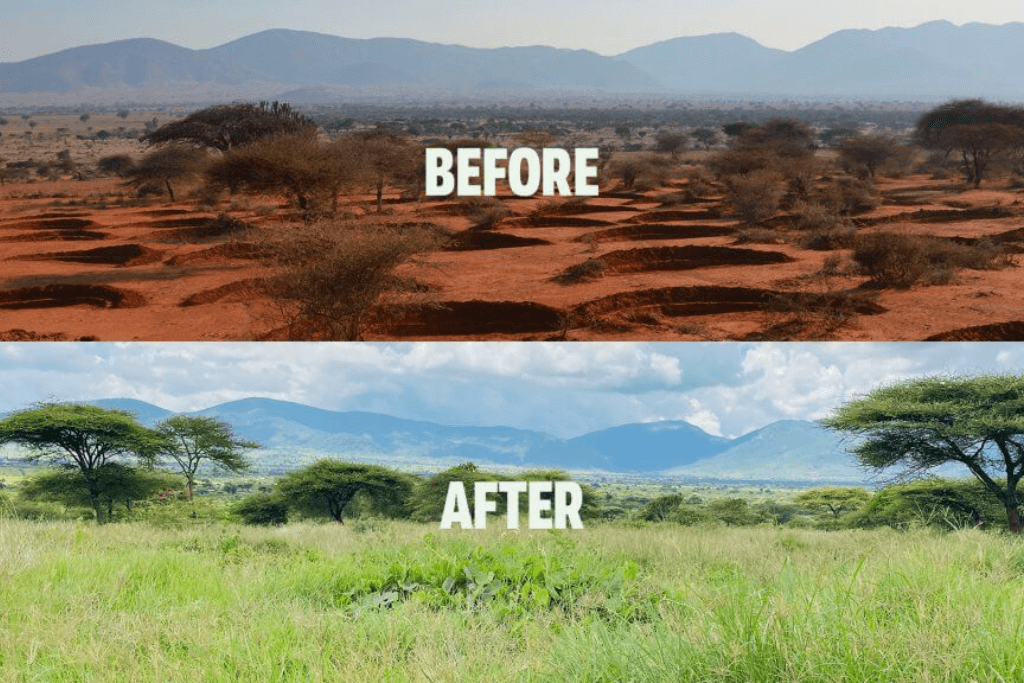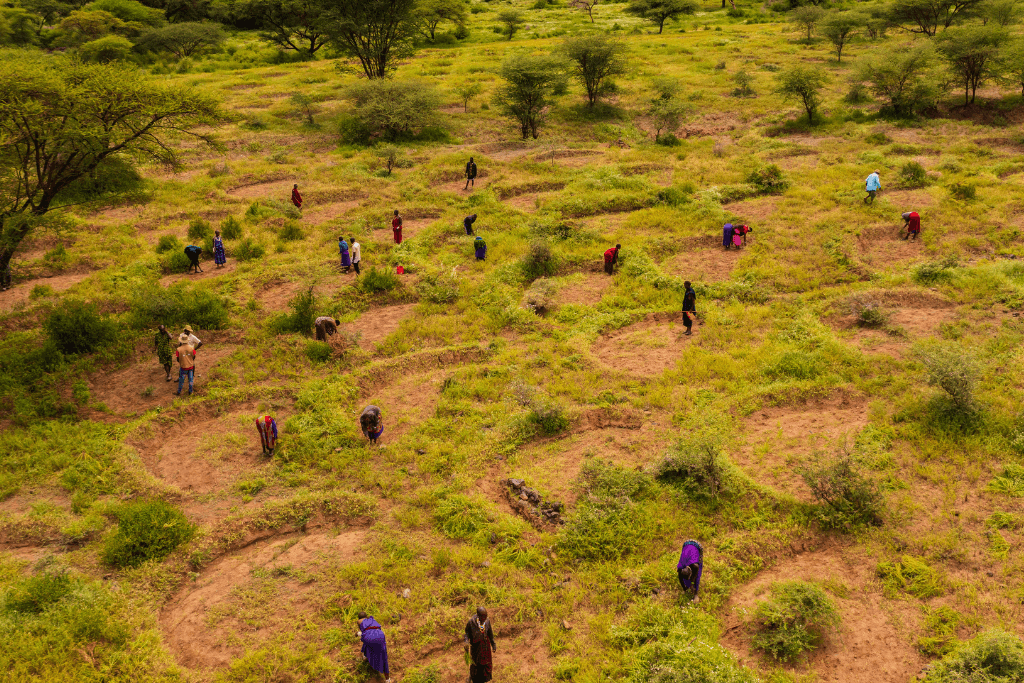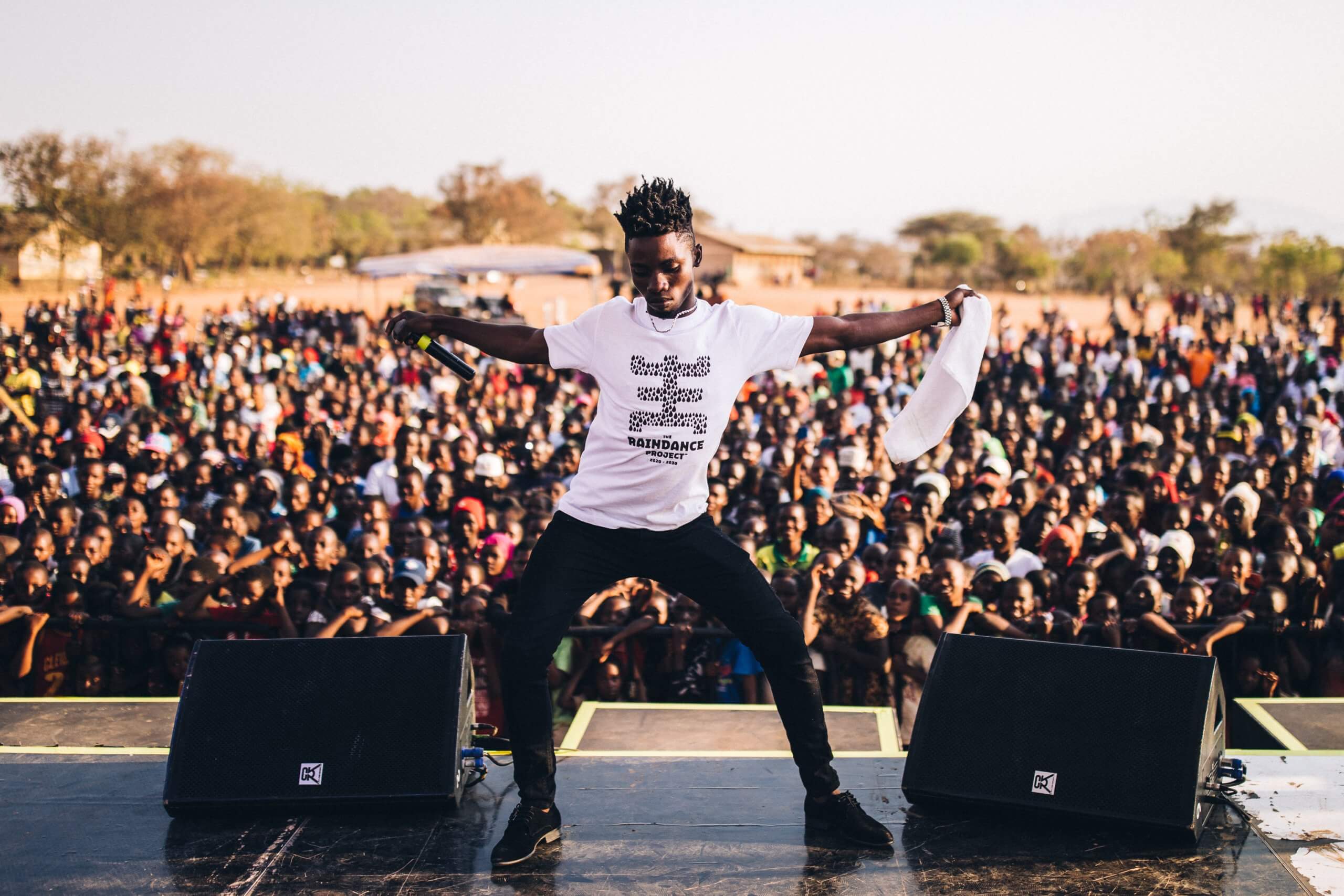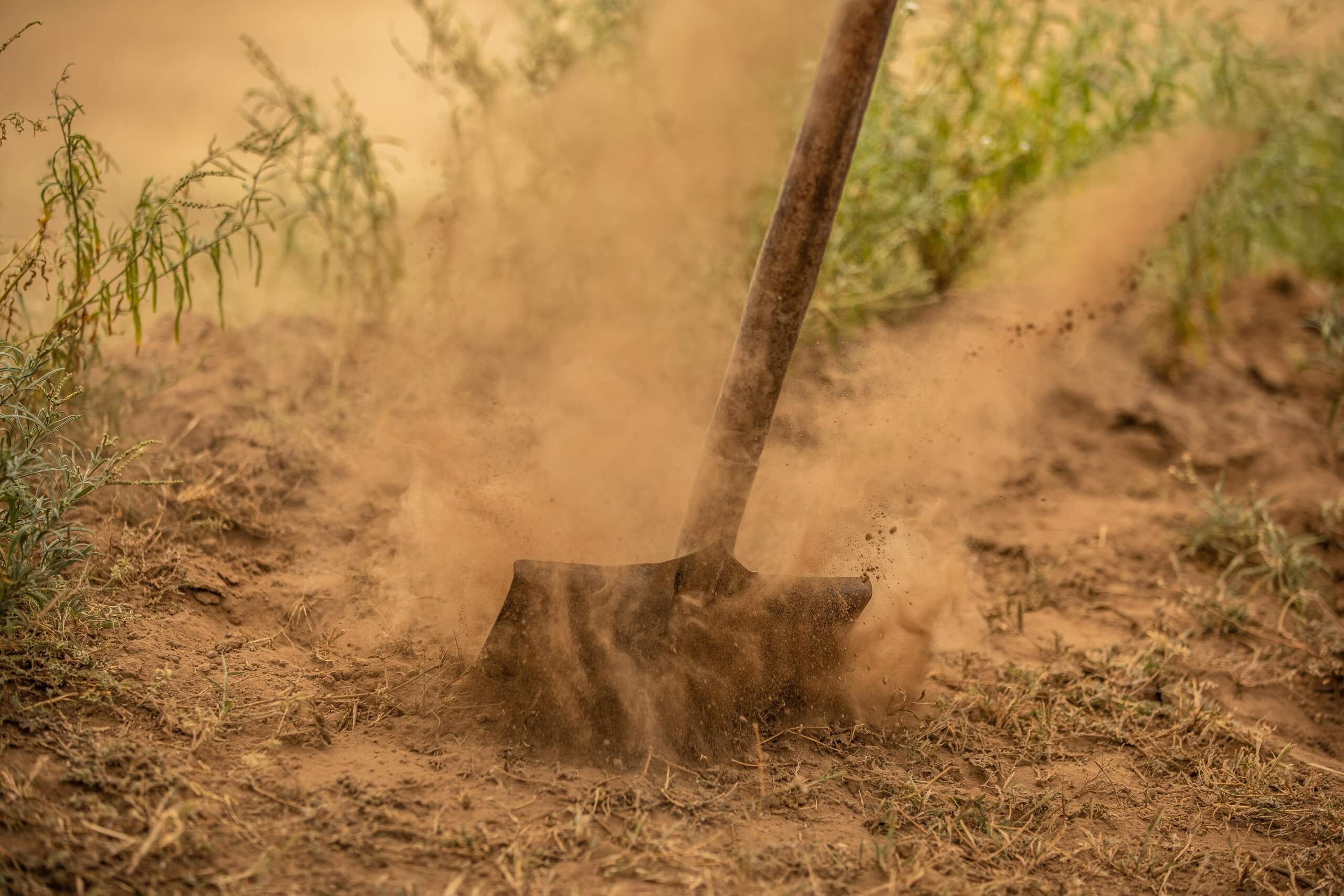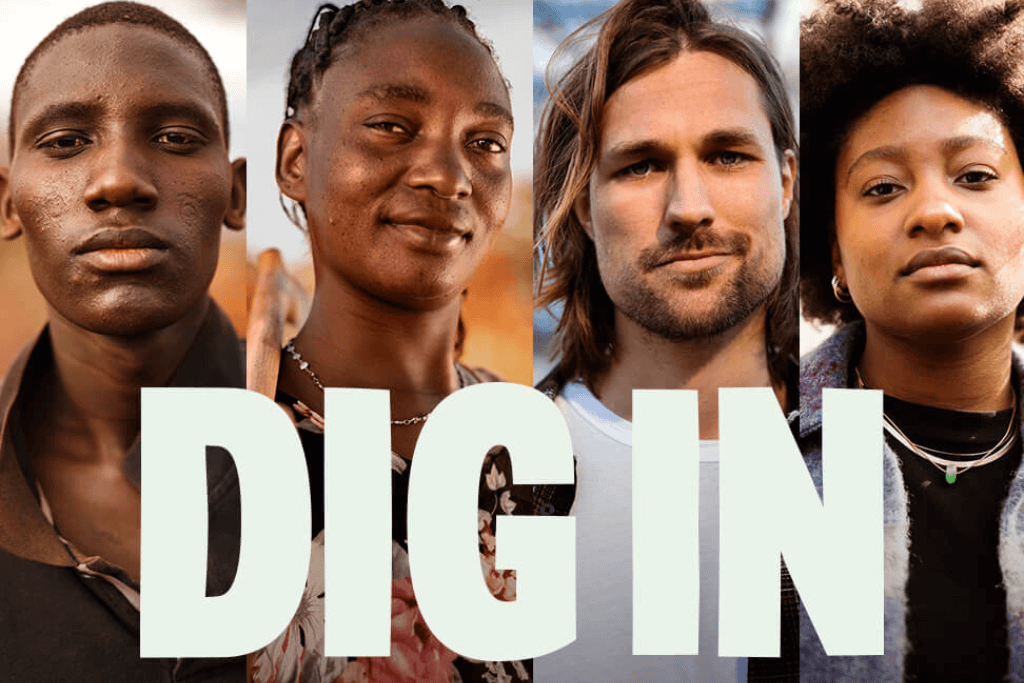Project update |||| 2024
An update from the field
Let’s start with an update on the Regreening Programme as a whole…
With the help of your fantastic support, the Regreening Singida Programme has made remarkable progress throughout the reporting period!
Let’s get to the most important results first. The programme is currently divided into four clusters: Cluster A, Cluster B, Cluster C and Cluster D. We’re thrilled to report that, by July 2024, a total of 6,775,575 trees have been restored, and over 46,119 metres of Fanya Juu trenches have been dug. And that’s not all: 67,323 households across 166 villages have been trained so far!
This progress is driven by a range of activities, including movie roadshows, ward events, and continuous coaching and mentorship provided by District Coordinators. Supportive supervision through field visits is actively taking place across Clusters A, B, and C, offering valuable insights into the ongoing progress in line with the programme’s goals.
Overall, the Regreening Singida Programme is making significant headway in advancing tree restoration and promoting sustainable agricultural practices in Central Tanzania.
Cluster D
This cluster includes 20 villages from the Singida programme, moving us closer to our goal of bringing Treecovery to 1,000 villages by 2030. Launched in May 2024 during the dry season in central Tanzania, this timing allowed us to introduce the programme to local government and beneficiaries and begin training them on key regreening techniques in preparation for the October-December rains.
A promising start
The programme had a promising start, with a stakeholders’ workshop held in Mkalama district to introduce the programme’s plans to district-level stakeholders. Villages involved in the programme also participated, and during the workshop, the criteria for selecting champion farmers were shared. As a result, 80 champion farmers (4 per village) were selected, with full support pledged by all stakeholders. Champion farmers are ordinary community members who can read and write, convince other people, and are willing to volunteer. While gender balance is one of the main criteria, the final selection is made by the villagers, led by village authorities. This approach boosts community ownership and ensures the selection of trusted champion farmers across the programme areas.
Launch of the Kijani app
In collaboration with our partner, LEAD Foundation, we successfully launched the Kijani app—a project we’ve worked hard on over the past few years!
The app offers various courses to help users regreen their areas, providing knowledge at their fingertips and allowing them to learn at their own pace. It was launched during Nane Nane, Tanzania’s Farmer’s Day, and received over 1,000 downloads. Nane Nane is preceded by a weeklong agricultural exhibition where stakeholders showcase their techniques. Our team participated in the national exhibition in Dodoma, as well as zonal shows in Arusha and Mbeya.
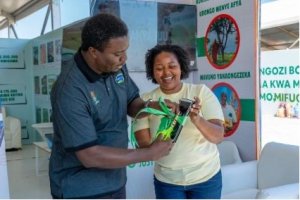
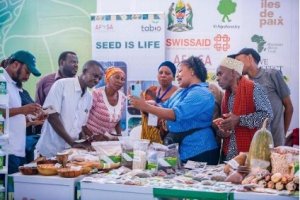
Figure 2: Right – Kijani app launched by the deputy minister of agriculture. Right – Explaining the Kijani app to a group of farmers during Nane Nane, Dodoma
Other highlights
- Training of Trainers (ToT):
Champion farmers receive three training sessions—basic, intermediate, and advanced—during the program. These sessions cover regreening techniques, communication, data recording, and reporting. All 80 champion farmers completed the basic ToT and were provided booklets for household data recording. - Building a Regreening Movement:
To inspire farmers and pastoralists, we use rural communication methods like movie roadshows. These half-day events feature training, traditional songs, and a cinema showcasing local farmers’ regreening success stories. Other methods are the painting of murals, which we have started preparations for and will start in the cluster’s villages in October, and the distribution to champion farmers of printed t-shirts to boost our brand.
